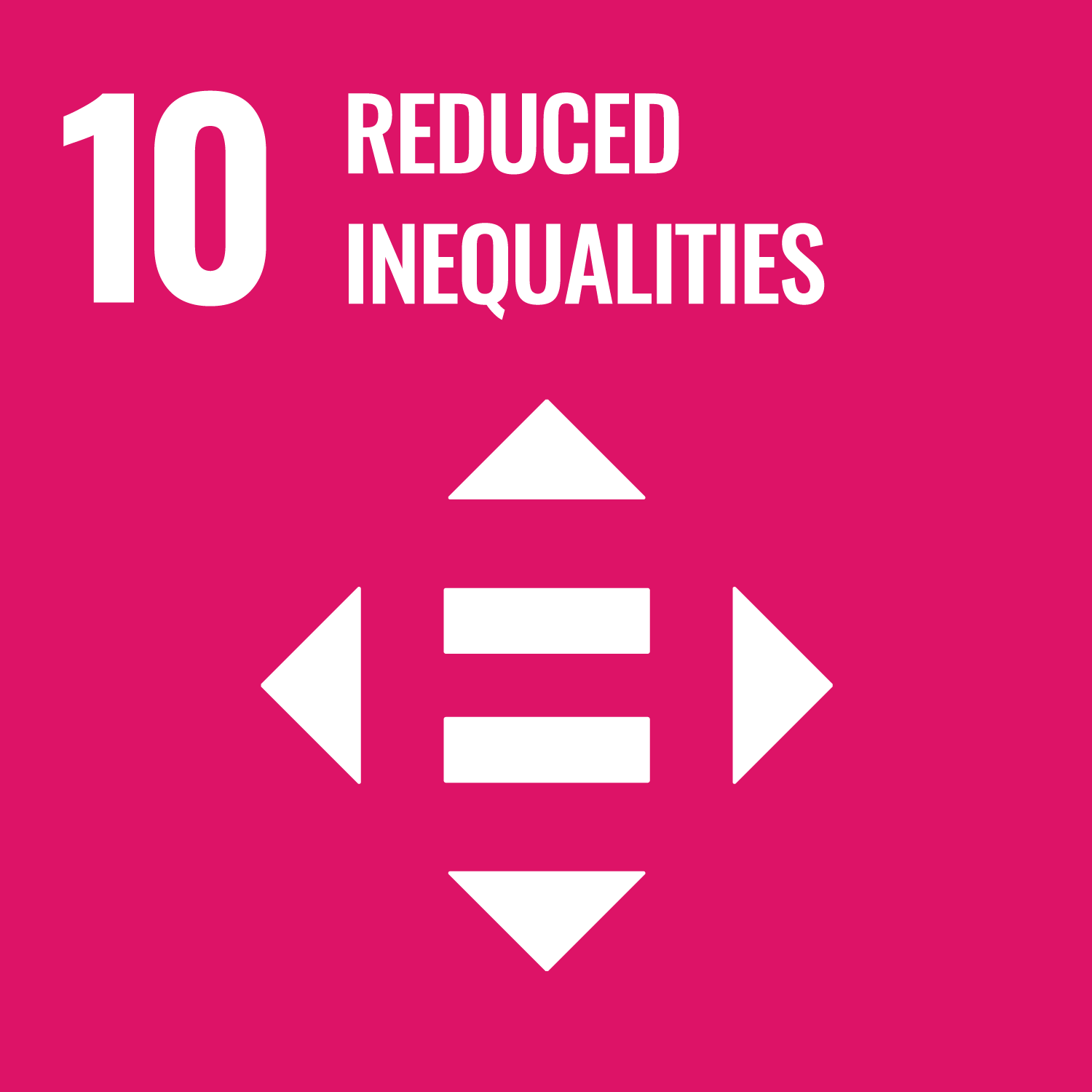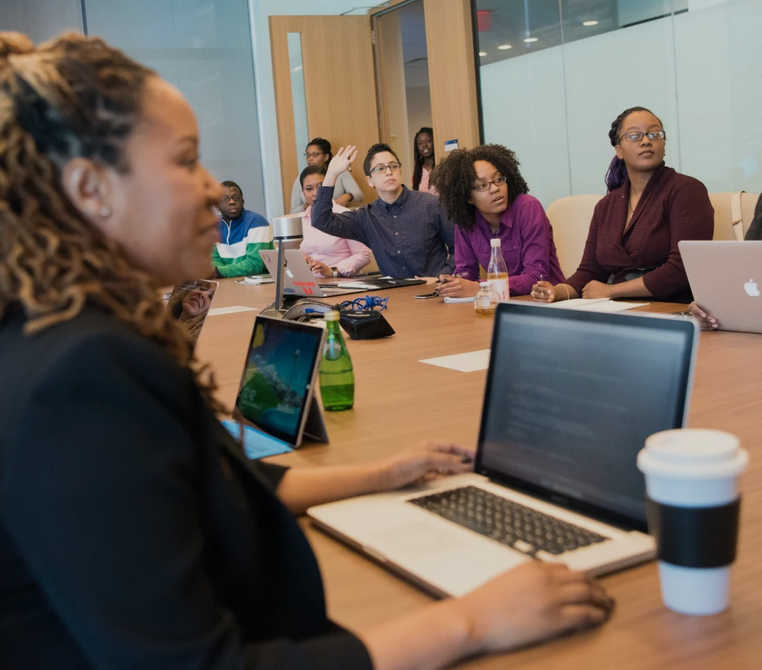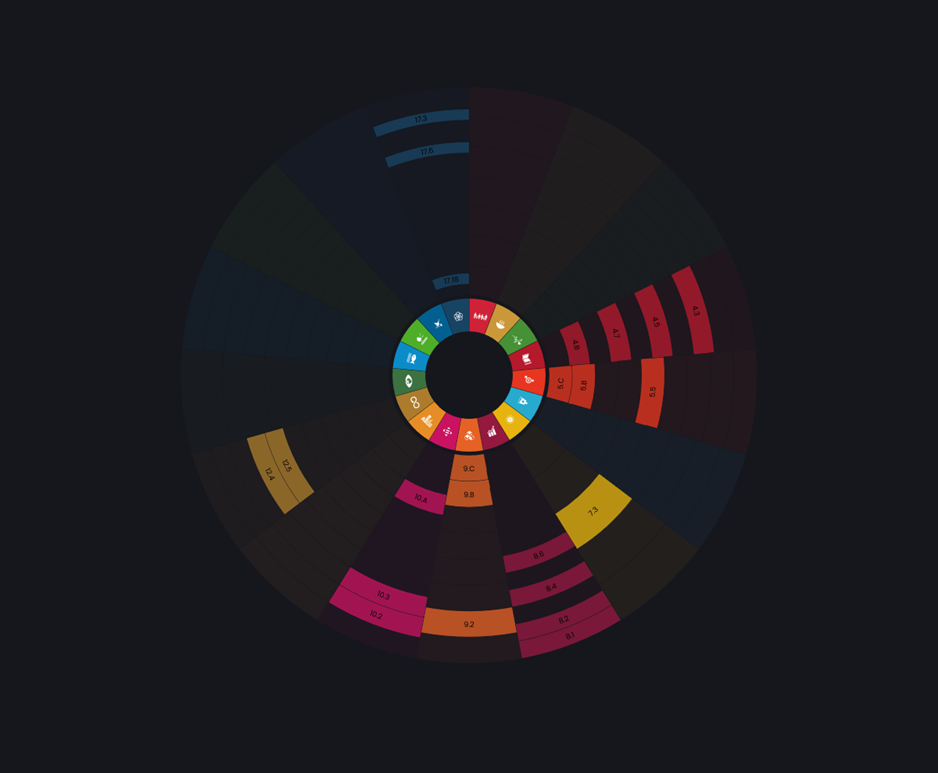Dr David Kreps
(Associate) Professor Digital Business and Society;
Programme Director BSc Business Information Systems
J.E. Cairnes School of Business and Economics, University of Galway

Dr David Kreps is a transdisciplinary academic. Combining philosophy with a background in the arts, cultural theory and sociology to address a critical perspective on systems theory, David is a critical philosopher of Information Systems – the transdisciplinary space where computing, the social and the nature of our relationship with reality intersect.
Chair of the Technical Assembly of the International Federation for Information Processing (IFIP).
Principal Investigator: Mainstreaming the SDGs in the J.E. Cairnes School of Business and Economics' Strategic Project.
David's work contributes to these SDGs
IFIP (International Federation for Information Processing), established in 1960 by UNESCO, is a prominent international organisation in Information & Communications Technologies and Sciences, recognised by the United Nations.
David has a history of active engagement in IFIP since 2008 and has held key leadership positions within Working Group 9.5 Our Digital Lives, Technical Committee 9 on ICT and Society, and most recently as Chair of the Committee of Technical Committee Chairs - the Technical Assembly of IFIP - and a member of the IFIP Executive Committee. He has played an instrumental role in the introduction of the IFIP Code of Ethics and Professional Conduct. He has also chaired and co-chaired various Human Choice and Computers conferences and served as Editor of Proceedings for Springer Publications over several years.
Key Targets: 10.2 Promote universal social, economic and political inclusion
10.3 Ensure equal opportunities and end discrimination

Teaching

Sustainable Information Systems David teaches this module on the new MSc Sustainable Leadership, to ensure the sustainability leaders of the future have knowledge both of the greening of ICTs (e.g. better end of use design), and of the potential for the greening by ICTs (e.g. helping improve energy efficiency).
David delivers modules using a "Prepare, Apply, Consolidate" format: students have specific tasks to complete to Prepare in advance of each lecture, where they engage in understanding how to Apply what they have prepared. After each lecture students Consolidate what they have learnt through further reading and exercises, which must be completed prior to the following week, when the cycle of Prepare, Apply, Consolidate begins again.
Supporting Target 4.7 - Education for sustainable development and global citizenship
Philosophy, Theory & Research Methods in IS helps students to develop an introductory understanding of philosophy (especially ethics) underpinning Information Systems (IS) research and practice, theory as it is developed and applied in IS, and Research Methods. Students use marker pens and sheets of A1 paper in a soft systems methodology to create rich pictures in the lecture workshops. This problem-based learning mirrors the approach taken in business. The module focuses on how UN Sustainable Development Goals 8 and 12 are relevant to information systems.
Supporting Targets: 8.4 Improve resource efficiency in consumption and production; 12.5 Substantially reduce waste generation
Engagement
As Chair of the International Federation for Information Processing Technical Assembly David interacts with a global audience: “There are lots of professional academic societies in the Information Systems community, but they tend to be hitched to the very commercial end of business world, so IFIP - as a UNESCO body with a mission for the public good - has a unique selling point. Rather than being cheek by jowl with business, we’re aligned with the UN and therefore more objective and more interested in the betterment of society and humanity." David led the task group that co-created the IFIP Code of Ethics.

(Indirectly supporting) SDG Targets
4.3 - Equal access to affordable technical, vocational and higher education
4.5 - Eliminate all discrimination in education
4.7 - Education for sustainable development and global citizenship
4.B - Expand higher education scholarships for developing countries
5.5 - Ensure full participation in leadership and decision-making
5.B - Promote empowerment of women through technology
5.C - Adopt and strengthen policies and enforceable legislation for gender equality
7.3 - Double the improvement in energy efficiency
8.1 - Sustainable economic growth
8.2 - Diversify, innovate and upgrade for economic productivity
8.4 - Improve resource efficiency in consumption and production
8.6 - Promote youth employment, education and training
9.2 - Promote inclusive and sustainable industrialization
9.B - Support domestic technology development and industrial diversification
9.C - Universal access to information and communications technology
10.2 - Promote universal social, economic and political inclusion
10.3 - Ensure equal opportunities and end discrimination
10.A - Special and differential treatment for developing countries
12.4 - Responsible management of chemicals and waste
12.5 - Substantially reduce waste generation
17.3 - Mobilize financial resources for developing countries
17.6 - Knowledge sharing and cooperation for access to science, technology and innovation
17.18 - Enhance availability of reliable data


Research

Featured Publications
David questions the nature of the business and social information systems so ubiquitous in contemporary life. Important topics in his research are Digital Inclusion, Value Sensitive Design and Understanding Digital Events. Featured publications (with indirect support for SDG targets):
|
References |
SDG |
|
Kreps, D., and Rowe, F., (2024) “Research Perspectives: Using a Process Philosophy Perspective in Information Systems Research: Principles of Creative Evolution,” Journal of the Association for Information Systems, 25(5), 1410-1433. |
10.2, 10.3 |
|
Kreps, D., Roche, M. de (2024). The International Federation for Information Processing Code of Ethics in Context. Computer, 57(2), 24-32. doi: 10.1109/MC.2023.3327628. |
9.2; 10.2, 10.3 |
|
Wheaton, J., Kreps, D. (2023). Towards a critical realist approach to the dark side of digital transformation. Frontiers in Human Dynamics, 5. |
10.2, 10.3 |
|
Kreps, D., Rowe, F. (2021). Free Will in Philosophy and in IS research: Where do we stand and where do we want to be? International Conference on Information Systems, Austin, Texas, USA 13/12/2021-15/12/2021. |
10.2, 10.3 |
|
Kreps, D. G. P., Fors, P. (2020). A Resource Perspective on E-Waste: A Global Problem with Local Solutions? In Strous, L., Johnson, R., Grier, D. A., Swade, D. eds., Unimagined Futures ICT Opportunities and Challenges. Cham, Switzerland: Springer. |
8.4; 12.4 |
|
Rahy, S., Kreps, D. G. P., Bass, J., Gaber, T., Ardo, A. (2020). A post-colonial analysis of agile software development methods in ICT4D IFIP WG9.4. European Conference on the Social Implications of Computers in Developing Countries ICT4D 2020, Manchester, UK, June 10–11, 2020, Proceedings. (IFIPAICT, volume 587). Cham, Switzerland: Springer. |
9.B; 10.A |
|
Gotterbarn, D., Kreps, D. G. P. (2020). Being a data professional: Give voice to value in a data driven society. AI Ethics 1(2), 195-203. |
9.2; 10.2, 10.3 |
|
Kreps, D. G. P., Rowe, F., Muirhead, J. (2020). Understanding digital events: Process philosophy and causal autonomy. 53rd Hawaii International Conference on System Sciences (HICSS) Grand Wailea, Maui, Hawaii. |
10.2, 10.3 |
|
Kreps, D., Gotterbarn, D., de Roche, M., Havey, M. (2021). IFIP Code of Ethics and Professional Conduct. Vienna: IFIP. |
9.2; 10.2, 10.3 |
|
Kreps, D. G. P. (2021). Theorizing Digital Experience: Four Aspects of the Infomaterial. In Hassan, N. R., Willcocks L. P. eds., Advancing Information Systems Theories. Cham, Switzerland: Palgrave Macmillan. |
10.2, 10.3 |
|
Kreps, D. G. P. (2021). IFIP Code of Ethics. In Goedicke, M., Neuhold, E. J. and Rannenberg, K. eds., Advancing Research in Information and Communication Technology: IFIP's Exciting First 60+ Years, Views from the Technical Committees and Working Groups. Cham, Switzerland: Springer. |
9.2; 10.2, 10.3 |
|
Kreps, D. G. P., Fletcher, G. (2021). The Impact of Human Choice and Computers and Technical Committee 9 on ICTs and Society: A Critical Sociotechnical Tale. In Goedicke, M., Neuhold, E. J. and Rannenberg, K. eds., Advancing Research in Information and Communication Technology: IFIP's Exciting First 60+ Years, Views from the Technical Committees and Working Groups. Cham, Switzerland: Springer. |
9.2; 10.2, 10.3 |
|
Kreps, D., van der Velden, M., Fors, P., Patrignani, N., Davison, R., Lennerfors, T., Zielinski, C, Kasper, G. M., Schultze, U. (2019). IFIP Position Paper on E-Waste. Vienna: Technical Publication. |
8.4; 12.4, 12.5 |
|
Kreps, D. G. P., Burmeister, O. K. (2019). I am a person: A review of value sensitive design for cognitive declines of ageing, interpreted through the lens of personhood. Orbit, 2(22). |
10.2, 10.3 |
|
Kreps, D. G. P., Bass, J., Nielsen, P., Kimaro, H. C. (2019). Southern theories in ICT4D. The IFIP 15th International Conference on Social Implications of Computers in Developing Countries, Dar es Salaam, Tanzania. |
9.B; 10.A |
|
Kreps, D. G. P. (2018). Against nature: The metaphysics of information systems. London: Routledge. |
4.3, 4.5; 10.2, 10.3 |
|
Burmeister, O., Kreps, D. G. P (2018). Power influences upon technology design for age-related cognitive decline using the VSD framework. Ethics and Information Technology, 23, 95–98. |
10.2, 10.3 |


